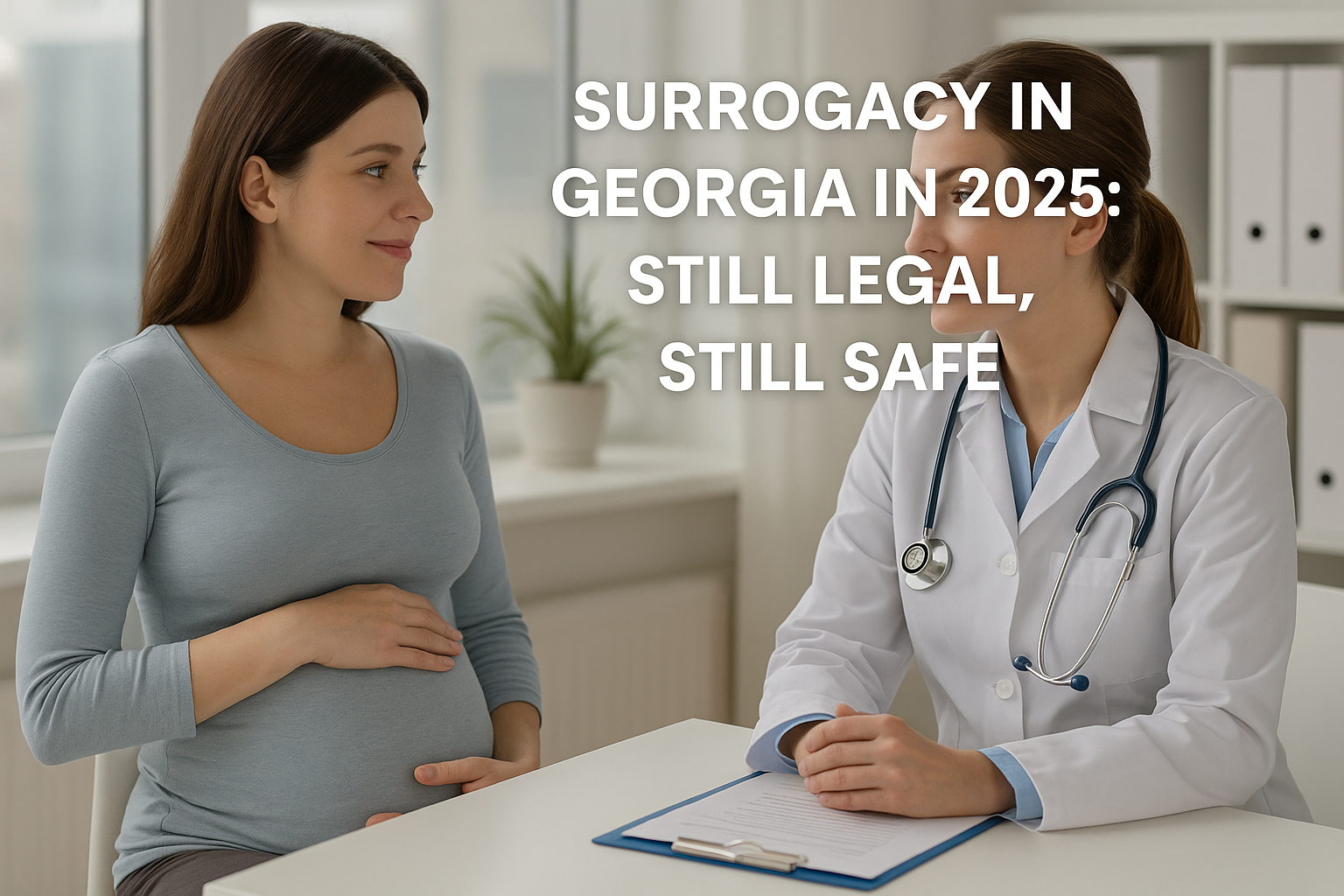In recent years, international coverage of Georgia’s surrogacy laws has raised concerns for intended parents considering the country for treatment. Headlines in 2023 suggested an outright ban on commercial surrogacy. By early 2024, embassies and advocacy groups were issuing cautious statements. But despite the noise, the reality on the ground in 2025 remains clear: surrogacy in Georgia is still legal, and still operating under the same framework that brought thousands of international families to the country.
What the Law Says
Georgia continues to permit commercial and altruistic surrogacy for heterosexual couples who are either legally married or have lived together for at least one year. The legislation, introduced in the 1990s and unmodified to date, remains among the most streamlined globally. Foreign citizens are fully eligible, and the intended parents are recognized as the child’s legal parents from birth.
Key points remain unchanged:
- Egg and sperm donation are permitted.
- Surrogates cannot also be the egg donors for the same pregnancy.
- Legal parenthood is assigned to the intended parents immediately after birth.
- The process for birth registration remains simple and does not require court involvement.
Despite rumors of reforms, no legal amendments were adopted in 2024. Programs continue as before, including those involving donor material, shipped embryos, and full-cycle IVF.
Why the Confusion Happened
In late 2023, the Georgian government issued a policy proposal suggesting a future restriction of surrogacy to Georgian citizens only. While this sparked concern, no draft law reached parliament. Advocacy from clinics, legal experts, and international stakeholders led to the proposal being shelved indefinitely. As of 2025, there is no active legislation aimed at banning or restricting surrogacy for foreigners.
News outlets such as Georgia Today and Al Jazeera covered the initial proposal, leading many prospective parents to assume the ban had been passed. But as reported by Growing Families and confirmed by clinics across the country, surrogacy remains accessible to international patients without disruption.
Who Can Still Apply
To qualify for surrogacy in Georgia, the intended parents must:
- Be a heterosexual couple (same-sex couples and single individuals are not eligible in Georgia);
- Be legally married or provide proof of one-year cohabitation;
- Submit a medical justification for surrogacy (e.g., health risks or inability to carry a pregnancy);
- Provide apostilled versions of the required legal documents.
For single intended parents or same-sex couples, SILK Medical offers equivalent programs through its clinic in Armenia, where the legal framework is different.
Why Georgia Remains a Top Destination
With unchanged legislation, lower treatment costs, and rapid timelines, Georgia continues to attract intended parents from over 25 countries. Compared to countries like the U.S., Greece, or Mexico, SILK Medical cliniс in Georgia offers:
- Fixed parental rights at birth without court rulings;
- IVF and surrogacy packages starting at $38,900 to $70,000;
- No hidden costs or additional documentation hurdles;
- Advanced equipment such as the EmbryoScope AI and IVFID Witness system, available in only select clinics worldwide.
SILK Medical alone has completed over 1,500 IVF cycles in the last two years and maintains a 100% live birth rate in its guaranteed surrogacy program.
SILK Medical in 2025
All surrogacy programs at SILK Medical in Tbilisi continue without disruption. Patients can choose from four structured packages depending on whether they have embryos, require donor eggs, or need guaranteed outcomes. Legal support, surrogate screening, and birth documentation are all included. Surrogates come from a diverse pool across the region and undergo strict screening before being admitted into the program.
For intended parents concerned by outdated headlines or embassy memos, the best course of action is direct communication with the clinic. Our coordinators provide updated legal guidance and help you prepare the necessary documents before travel.
In Summary
Despite earlier speculation, Georgia has not banned or restricted surrogacy. The law remains favorable to foreign intended parents, the clinical infrastructure is strong, and the legal clarity at birth is unmatched. In 2025, Georgia remains one of the most secure and cost-effective surrogacy destinations in the world.
For more detailed information about surrogacy programs at SILK Medical, including pricing and eligibility, contact our coordination team or review the program breakdowns. External updates on surrogacy law are available at Growing Families and Georgia Today.


